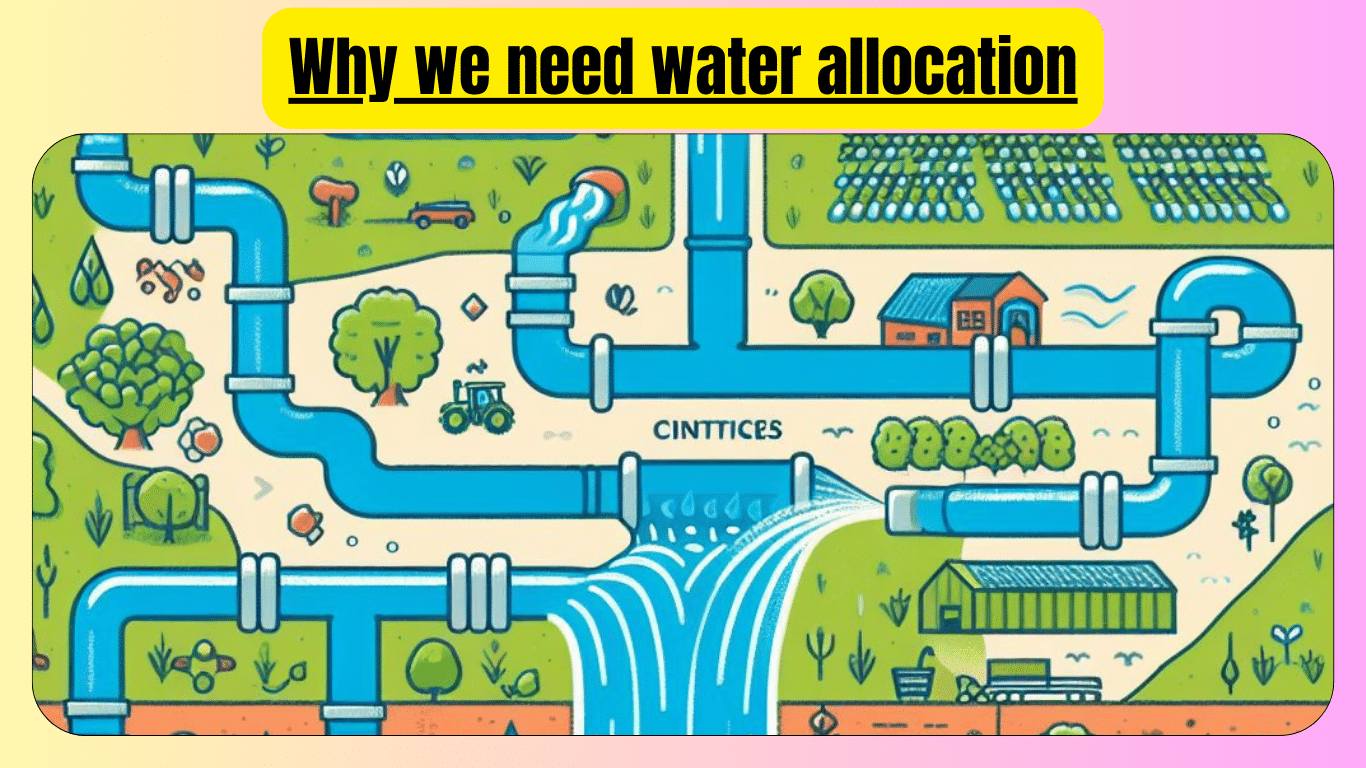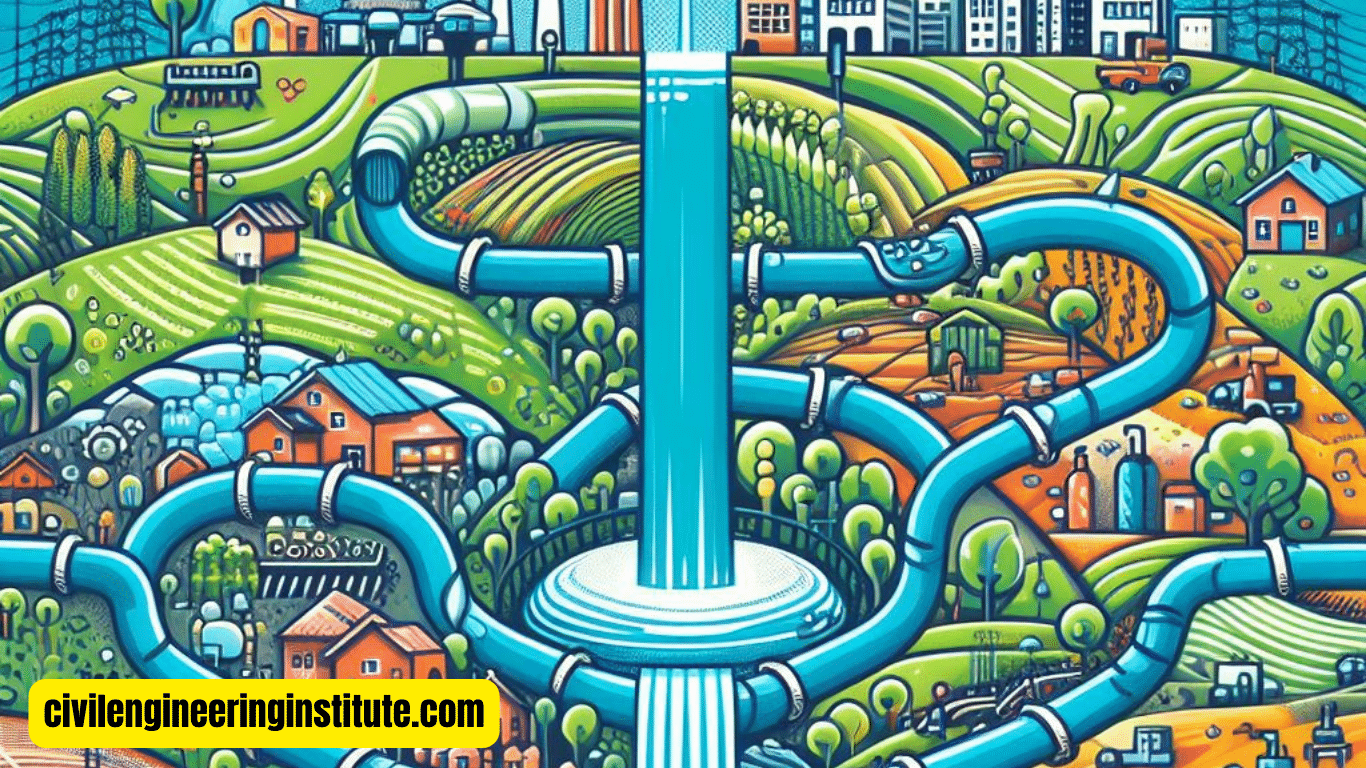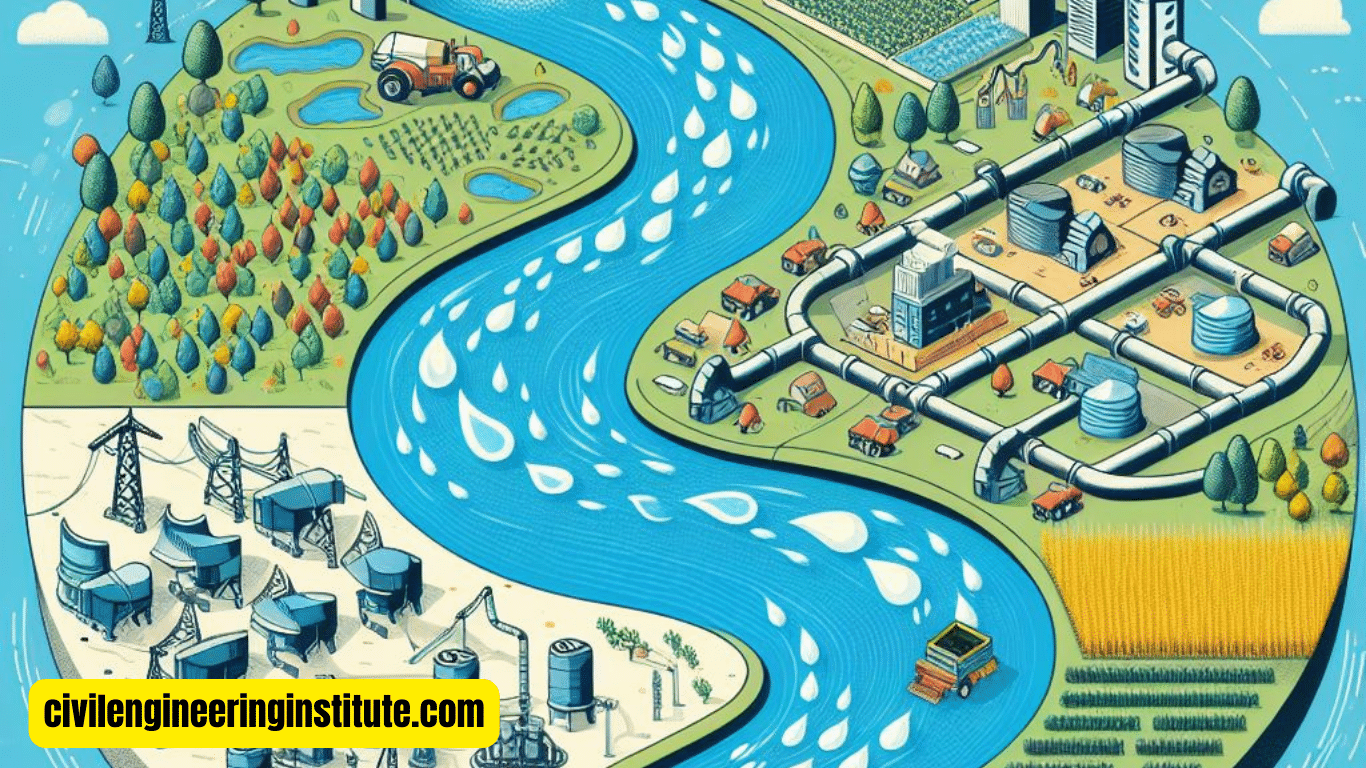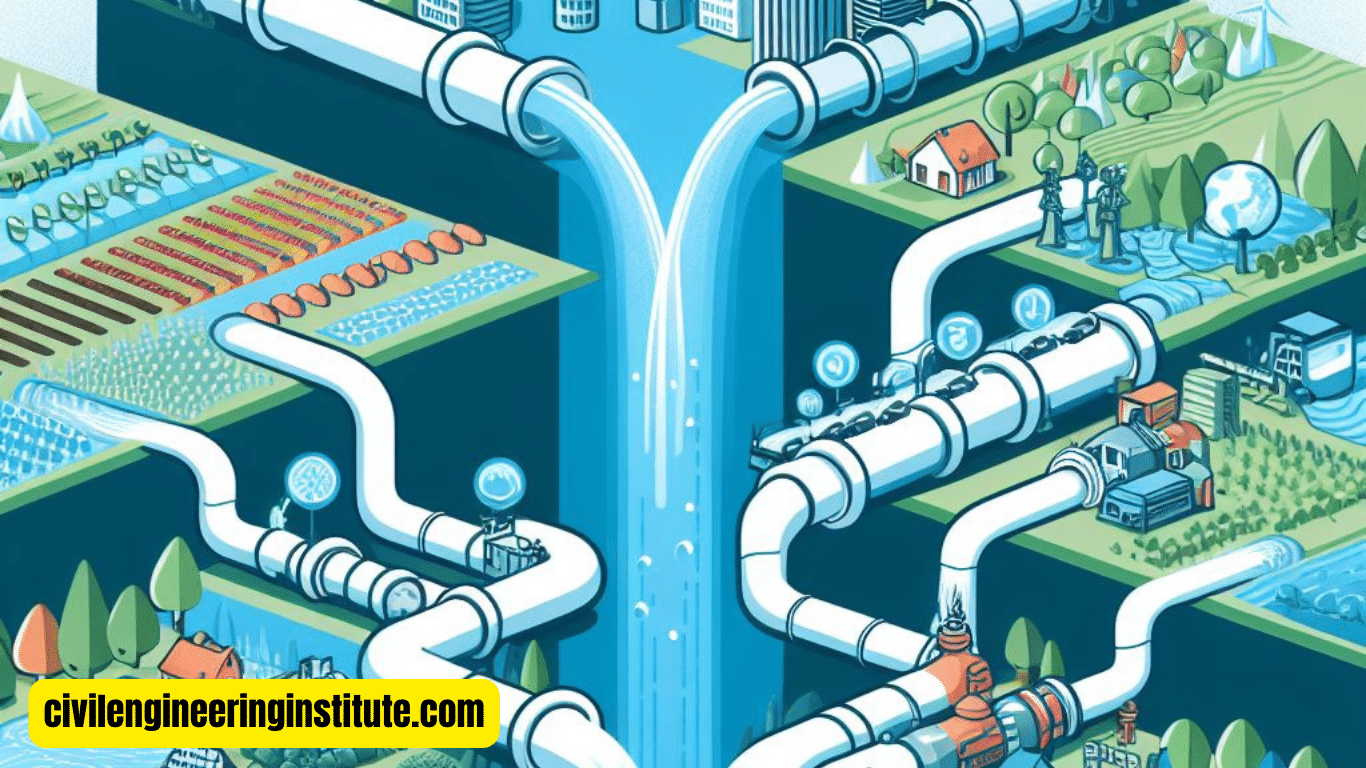Why we need water allocation because it is essential for ensuring fair distribution of this essential resource among various users, whether it’s for drinking, agriculture, industry, or environmental purposes, water plays a vital role in sustaining life and supporting economic activities. Proper water allocation helps prevent conflicts over scarce water resources and ensures that everyone has access to the water they need.
By efficiently managing water allocation, we can promote sustainable development, protect ecosystems, and address the needs of both present and future generations. Effective water allocation strategies consider factors such as population growth, climate change, and competing demands to ensure equitable and reliable access to water for all.
Why We Need Water Allocation: Ensuring Equitable Distribution for Sustainable Development
Water is a precious resource that sustains life on Earth. From drinking and agriculture to industry and sanitation, water is essential for various human activities. However, with growing populations and increasing demands, ensuring equitable access to water has become a significant challenge. This is where water allocation comes into play. In this article, we’ll explore the importance of water allocation, its role in sustainable development, and why it’s crucial for addressing the needs of both present and future generations.
What is Water Allocation?
Water allocation refers to the process of distributing water resources among different users and sectors. It involves making decisions about how much water should be allocated to various purposes, such as domestic use, agriculture, industry, and environmental conservation. The goal of water allocation is to ensure that water is used efficiently, fairly, and sustainably, taking into account the needs of all stakeholders and the long-term health of water ecosystems.
The Importance of Water Allocation
- Preventing Water Scarcity
- Promoting Sustainable Development
- Managing Competing Demands
- Protecting Ecosystems
- Adapting to Climate Change
Preventing Water Scarcity
Water scarcity occurs when water demand exceeds the available supply. By allocating water resources efficiently, we can prevent scarcity and ensure that everyone has access to the water they need for drinking, sanitation, and other basic needs.
Promoting Sustainable Development
Sustainable development requires balancing economic growth with environmental protection and social equity. Water allocation plays a crucial role in achieving this balance by ensuring that water resources are managed in a way that meets current needs without compromising the ability of future generations to meet their own needs.
Managing Competing Demands
Water is often in high demand for various purposes, leading to conflicts over its use. Water allocation helps manage these competing demands by establishing clear priorities and guidelines for how water should be allocated among different users and sectors.
Protecting Ecosystems
Healthy aquatic ecosystems are essential for supporting biodiversity, regulating water quality, and providing various ecosystem services. Water allocation strategies that prioritize environmental conservation help protect these valuable ecosystems and the services they provide to both humans and wildlife.
Adapting to Climate Change
Climate change is altering precipitation patterns and increasing the frequency and intensity of droughts and floods. Effective water allocation can help communities adapt to these changes by ensuring that water resources are used efficiently and that adequate measures are in place to cope with extreme weather events.
Challenges in Water Allocation
- Population Growth
- Climate Change
- Water Pollution
- Lack of Infrastructure
Population Growth
As the global population continues to grow, so does the demand for water. This puts pressure on water resources and makes it more challenging to allocate water equitably among competing users.
Climate Change
Climate change is altering the availability and distribution of water resources, making it difficult to predict future water availability and plan for long-term water allocation strategies.
Water Pollution
Pollution from agricultural runoff, industrial discharge, and urban wastewater can degrade water quality and limit its suitability for various uses. Effective water allocation must take into account efforts to prevent and mitigate water pollution.
Lack of Infrastructure
In many regions, inadequate infrastructure hinders the efficient allocation and distribution of water resources. Investing in water infrastructure is essential for ensuring reliable access to water for all users.
The Role of Technology in Water Allocation
Advancements in technology have revolutionized the way we manage water resources. Remote sensing, geographic information systems (GIS), and computer modeling tools allow water managers to monitor water availability, predict future water demand, and optimize water allocation decisions. Additionally, smart water meters and sensors enable real-time monitoring of water use, helping identify inefficiencies and opportunities for conservation.
Some key points: Why we need water allocation
Why is Water Allocation Important?
Water allocation is crucial because it ensures that water resources are distributed fairly among different users and sectors. Without proper allocation, there could be conflicts over water use, leading to shortages and inequities. By allocating water efficiently, we can prevent water scarcity, promote sustainable development, and protect the environment.
What is the Meaning of Water Allocation?
Water allocation refers to the process of dividing available water resources among various users and purposes. It involves making decisions about how much water should be allocated to drinking, agriculture, industry, and environmental conservation. The goal of water allocation is to meet the needs of all stakeholders while ensuring the long-term sustainability of water ecosystems.
What is the Water Allocation Regime?
The water allocation regime refers to the set of rules, regulations, and policies that govern the allocation of water resources within a particular jurisdiction. This regime defines how water rights are allocated, managed, and enforced, and it often reflects the priorities and values of the society or government overseeing water management.
What is High Water Allocation?
High water allocation refers to a situation where a significant amount of water is allocated to a particular user or sector. This could be due to factors such as high demand, water rights, or government policies. While high water allocation may meet immediate needs, it can also lead to overuse and depletion of water resources if not managed sustainably.
What is the Importance of Saving Water Resources?
Saving water resources is essential for ensuring their availability for future generations and protecting the environment. By conserving water through measures such as efficient use, recycling, and reducing pollution, we can mitigate water scarcity, maintain ecosystem health, and support sustainable development.
Why is Water a Shared Resource?
Water is a shared resource because it is essential for all life forms and activities on Earth. It crosses political boundaries, ecosystems, and societal sectors, making it necessary for cooperation and collaboration among different stakeholders. As a shared resource, water requires collective management and stewardship to ensure its sustainable use and equitable distribution.
Is Water the Best Resource?
Water is often considered one of the most valuable resources due to its fundamental role in sustaining life, supporting ecosystems, and driving economic activities. While other resources are also essential for human well-being, water’s unique properties and universal importance make it indispensable for all aspects of human existence.
What is the Necessity of Mapping Water Resources?
Mapping water resources is essential for understanding their distribution, availability, and quality. By mapping water resources, we can identify areas of abundance and scarcity, assess potential risks and vulnerabilities, and develop informed water management strategies. Mapping also helps prioritize conservation efforts and allocate resources effectively.
Why is a Planned Water Supply Essential?
A planned water supply is essential for ensuring reliable access to water for all users, especially in areas prone to water scarcity or environmental degradation. By planning and managing water supply systems, we can optimize water allocation, reduce waste, and improve resilience to climate change and other challenges. A planned water supply also helps meet growing demand while safeguarding water resources for future generations.
Conclusion
Water allocation is essential for ensuring equitable access to this vital resource and promoting sustainable development. By managing competing demands, protecting ecosystems, and adapting to climate change, water allocation plays a crucial role in safeguarding water resources for future generations. Through effective water allocation strategies and investments in technology and infrastructure, we can address the challenges of water scarcity and ensure that water remains available for all who depend on it.
FAQs
What is water allocation?
Water allocation is the process of distributing water resources among different users and purposes to ensure fair and sustainable usage.
Why do we need water allocation?
Water allocation is necessary to prevent conflicts over water use, ensure everyone has access to water, and protect the environment.
Who decides the water allocation?
Government organizations, water authorities, or regulatory bodies in charge of managing water resources typically make water allocation decisions.
What factors influence water allocation?
Factors like population growth, water demand, environmental needs, and legal rights affect water allocation decisions.
How does water allocation benefit communities?
Water allocation promotes equitable access to water for drinking, agriculture, industry, and environmental conservation, supporting sustainable development.
What happens if water is not allocated properly?
Improper water allocation can lead to water shortages, conflicts among users, ecosystem degradation, and hindered economic activities.
Is water allocation the same everywhere?
No, water allocation varies by region depending on factors like water availability, population density, legal frameworks, and socioeconomic conditions.
Can individuals influence water allocation?
Yes, individuals and communities can participate in water management processes, advocate for equitable allocation, and promote water conservation efforts.
How can technology help with water allocation?
Technology such as remote sensing, GIS, and water monitoring systems can improve water allocation decision-making by providing data on water availability and demand.
What role does conservation play in water allocation?
Conservation practices such as water recycling, efficient irrigation, and reducing water waste are essential for optimizing water allocation and ensuring long-term sustainability.






